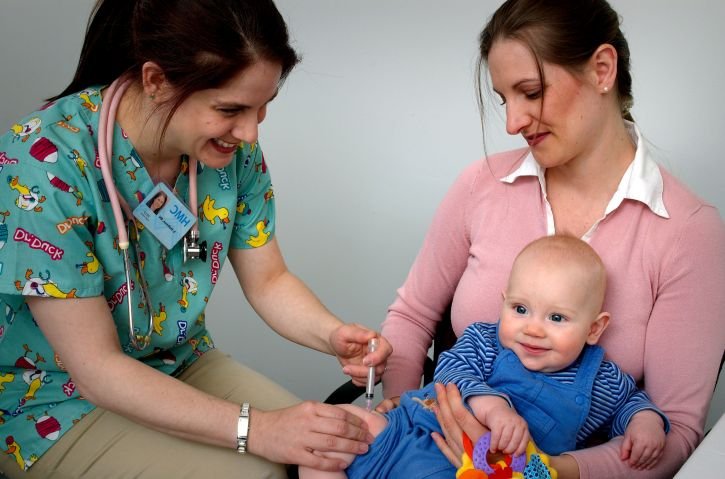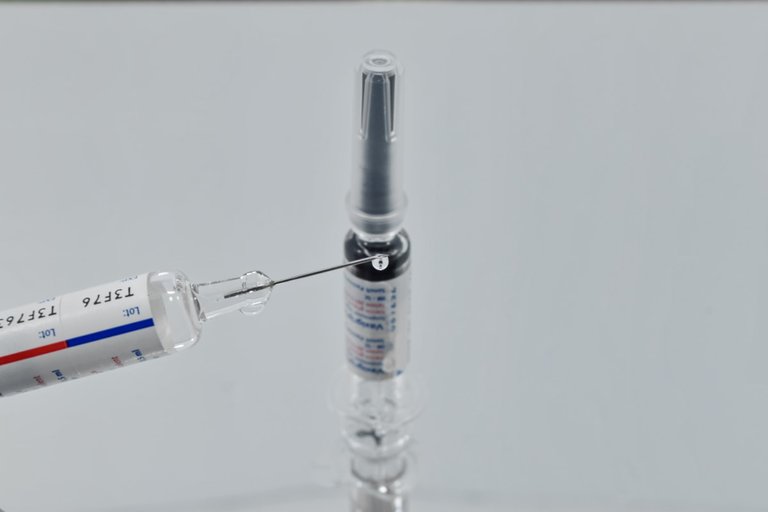Congratulations to the new parents. You have given birth to a bouncy baby and the journey to parenthood just kicked off. I might not know if the same is obtainable in other countries, if you are in Nigeria, you have got nothing more than fourty-eight (48 hours) for your baby to take his/her first vaccine which is known as the Bacillus Calmette-Guerin (BCG) vaccine. Similarly, the first dose, out of the 4 recommended doses, of the oral polio vaccine must be administered within the same timeframe.
Three doses each of the DPT (diphtheria, pertussis, and tetanus) will follow at the 6th, 10th, and 14th week after the birth of the baby while, at least, two more doses of the oral polio vaccine must be taken at 6th, 10th, and 14th month. The peak of it all is when the baby gets to 9 months and a dose of measles vaccine has to be administered.

The vaccines are products of thorough research in finding solutions to diseases that have been plaguing humans for a while. Instead of looking for treatment all over the place when infections have occurred, vaccines prevents infection from occuring. Not all known diseases have vaccines, not yet. Hence, the ones that have vaccines are classified as vaccine preventable diseases.
What the vaccines do is to trigger the immune system of individuals into producing antibodies against the pathogens of respective diseases. Once the antibodies have been secreted into the body system once, it becomes easier for the body system to recognize any future invasion by the pathogens and quickly put a defense in place against them, thereby preventing them from causing infection in the system.
The vaccines themselves are made up of weakened or inactive components or parts of pathogens responsible for specific dieases. The pathogens or their parts are strong enough to elicit immune response from the host's immune system but weak enough not to overpower it. Nowadays however, there are vaccines that are made up of components that can form the antigen instead of putting the antigens directly.
Most vaccines require special storage conditions due to the sentivity of their components to external environmental conditions. For example, a vaccine that is made of weakened pathogen might be needed to be kept at a particular temperature to ensure that the pathogen remains weakened. At higher temperature, such pathogen might become fully virulent and at lower temperature, it cna become irreversibly inactive.
In advanced countries, the facilities to keep these vaccine in appropriate conditions might not pose a huge problem. However, in developing and underdeveloped countries, this represents a huge problem. In Nigeria, stable power supply has been a mirage for a very long time. This poses a huge problem for storage and distribution logistics of vaccines that required cold-chain storage.
The way out of the problem is to provide alternatives and these often require more capital which poses a problem on its own. COnsequently, there seems to be lack of trust in the effectiveness potential of the vaccines being administered in developing and underdeveloped countries.
Many parents have been complaining about how their children/wards get sick each time they are administered with vaccines. In actual fact, I have seen a parent vowing never to immunize her child again after witnessing a major fever in her baby due to the vaccination. While a slight fever is considered normal in most cases depending on the type of vaccine, the distrust in the storage process has been a major driver of vaccination/immunization apathy from many in Nigeria.
To set the record straight, it is impossible to get the diseases of a specific pathogen whose vaccine is made from a dead version of the pathogen or just a component of its part. However, vaccines made from weakened version of the causative organisms have the tendency to make a child develop a mild symptoms of the disease.
An exception, however, exist for the oral polio vaccine and other forms of live-attenuated vaccine that are usually made from the weakened form of the pathogen. They can elicit serious symptoms in immunocompromised or immunodeficient children. Vaccine-associated paralytic poliomyelitis has been well-recorded from research findings.
Apart from the problem that can occur with immunodeficient people, live-attenuated vaccines that are not circulated round the entire population in a community can cause the pathogen to circulate, mutate, and reacquire what is scientifically known as neurovirulence. This often happen with vaccines targeted against viruses.

Conclusion
The effectiveness of vaccines in developing and underdeveloped countries can be rightly questioned due to inadequate facilities and other logisitic issues that are specific to each type of vaccine. Improper storage can damage the components of vaccines and render it ineffective while inadequate coverage of the population in a community can cause the pathogen to mutate within the population and reacquire virulence in the case of vacciness targeted at viruses.
The ineffectiveness as a result of storage or handling might be the reason that many children come down with infection from diseases they have been vaccinated against.
Thank you all for reading
References
- https://kidshealth.org/en/parents/fact-myth-immunizations.html
- https://www.goodrx.com/blog/can-vaccines-make-you-sick/
- https://www.who.int/news-room/feature-stories/detail/how-do-vaccines-work
- https://www.who.int/news-room/feature-stories/detail/the-race-for-a-covid-19-vaccine-explained
- https://bmcpublichealth.biomedcentral.com/articles/10.1186/1471-2458-10-116
- https://polioeradication.org/polio-today/polio-prevention/the-vaccines/opv/
A lot of things are worth questiojing where vaccines are concerned in third world countries. However, i have to appaud their ability to reach certain places. We have to admit that moving to certain areas in Nigeria is difficult.
However, how good these vaccines are is difficult to ascertain.
They really work hard in that regards and its because they have to report to their international NGO sponsors. My son took measles vaccine but has come down with measles twice within two years now. I don't know if it is normal or not. Talking about effectiveness
I think the measles is normal. But I don't know. Maybe I'm just speaking from a Nigerian POV
Hmm, if there is unstable power supply then the whole process of vaccination is a farce unless they have power backups.
Apart from this there are various conspiracy theories which also make people go against vaccinations.
Of course, I know about the antivaxers and their conspiracies. Those involve in the storage and distribution logistics always claim to use power backups every time but we all know how things work in the country.
Logistics around vaccination are often taken for granted, thanks for the reminder that it may not be the case everywhere. That is very unfortunate that these issues can cause inefficiency or even worse, particularly for children. I can also understand how this brings hesitancy in the population.
Yea. Coupled with the conspiracy theorists in the developed countries. One would want to opt out totally
Congratulations @gentleshaid! You have completed the following achievement on the Hive blockchain and have been rewarded with new badge(s) :
Your next target is to reach 31000 upvotes.
You can view your badges on your board and compare yourself to others in the Ranking
If you no longer want to receive notifications, reply to this comment with the word
STOPSupport the HiveBuzz project. Vote for our proposal!
Thanks for your contribution to the STEMsocial community. Feel free to join us on discord to get to know the rest of us!
Please consider supporting our funding proposal, approving our witness (@stem.witness) or delegating to the @stemsocial account (for some ROI).
Please consider using the STEMsocial app
app and including @stemsocial as a beneficiary to get a stronger support.
Hopes for an end to the Covid-19 pandemic began to emerge since the vaccine was invented. Unfortunately, many people still doubt the efficacy of vaccines and refuse to vaccinate. Luckily, the latest survey shows that global public confidence in the Covid-19 vaccine is starting to increase.
A recent poll conducted in the UK shows that global public confidence in vaccines is starting to grow. Currently, more and more people are willing to receive vaccines in the midst of the Covid-19 outbreak.
Vaccines are great. The paranoia being felt by the populace is understandable considering the short period of time the vaccines were invented and approved